Past Electrical & Computer Engineering Department SEMINAR Series
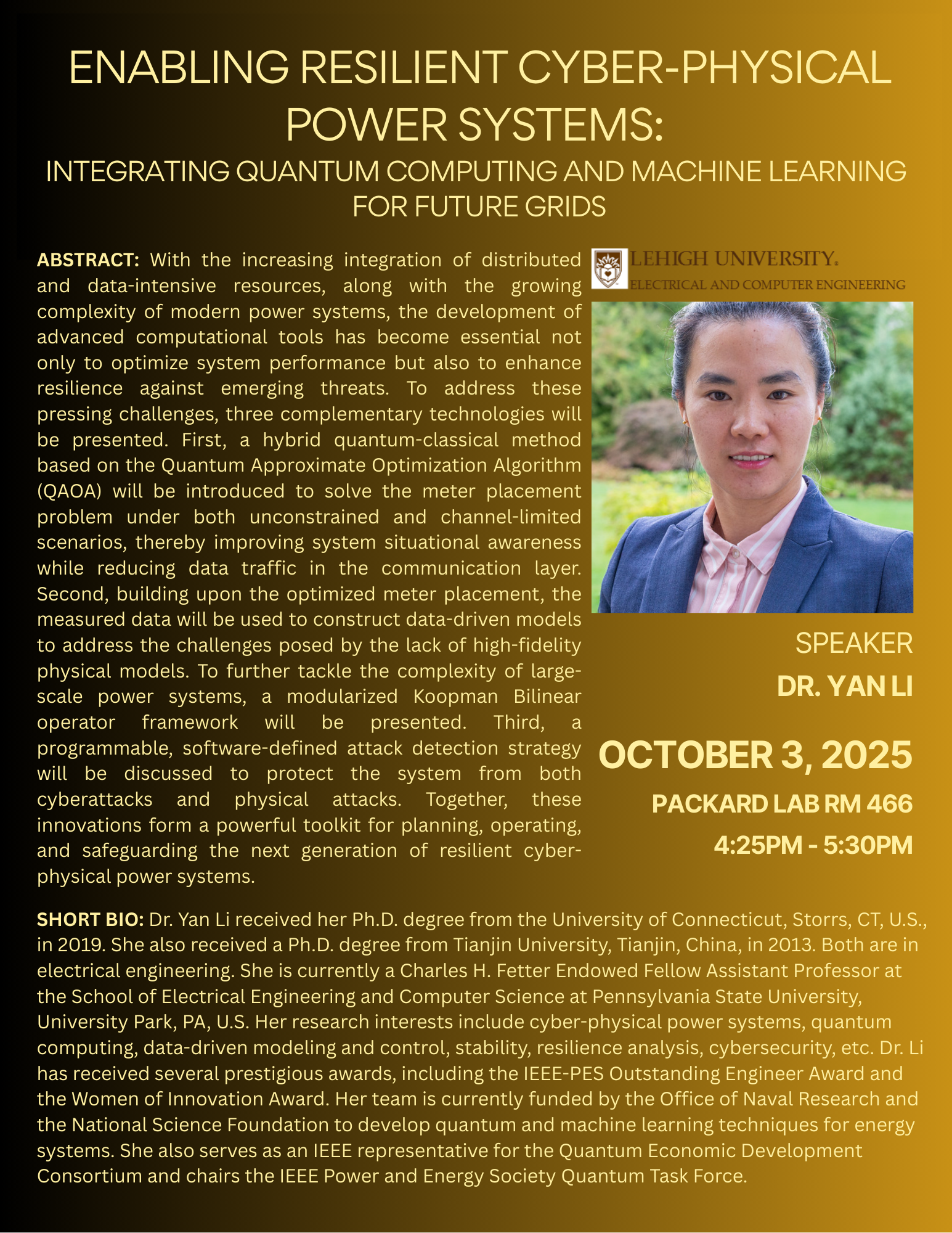
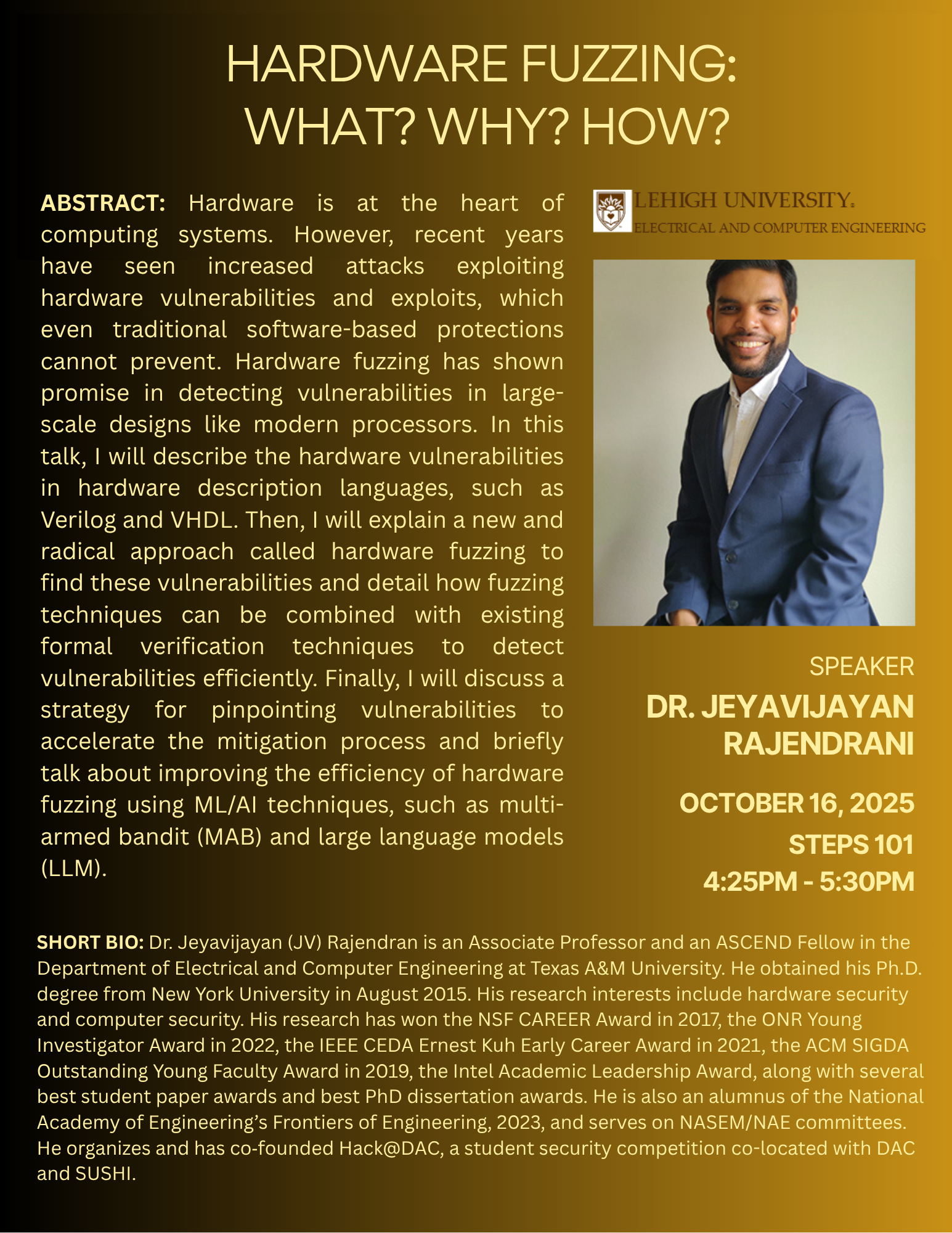
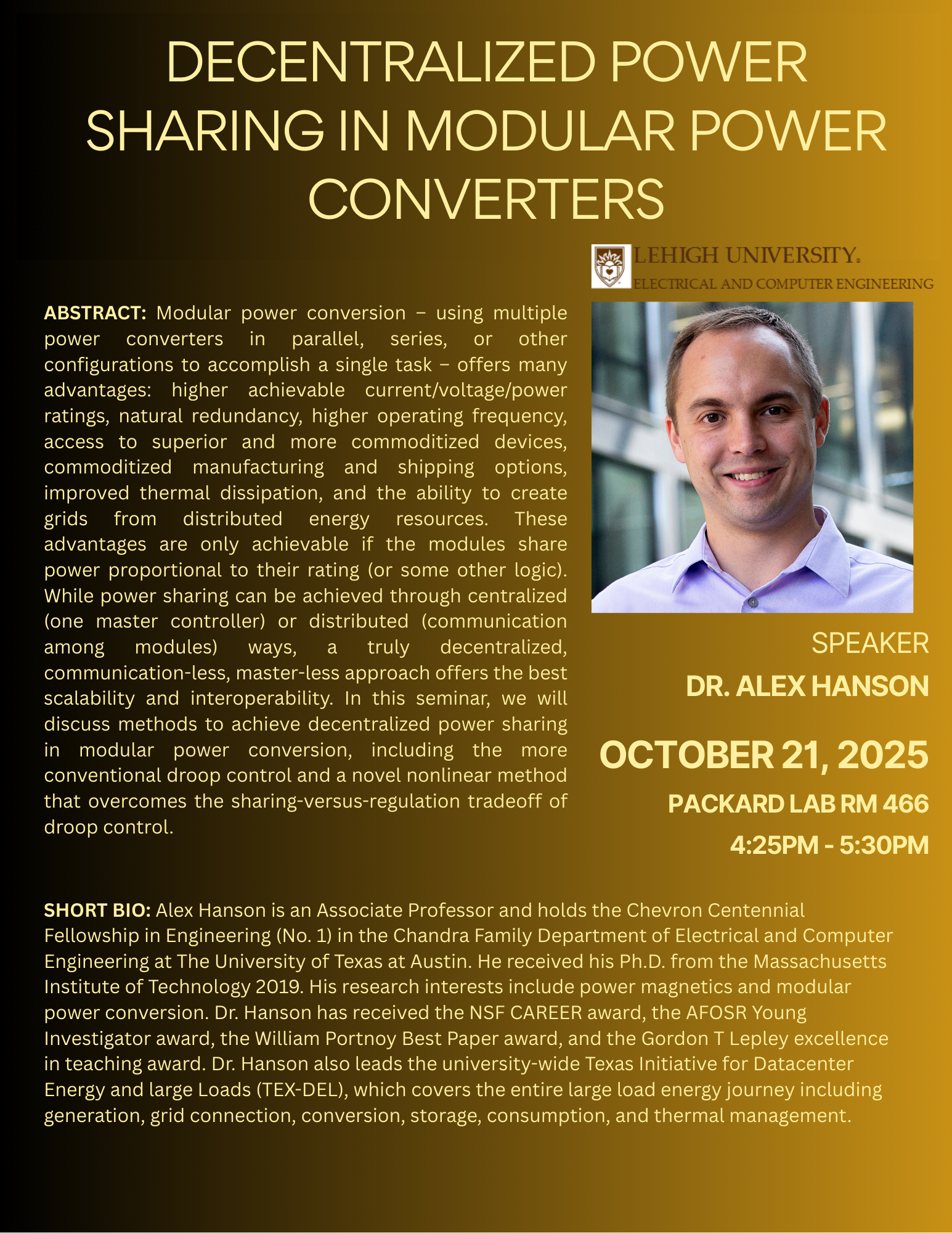
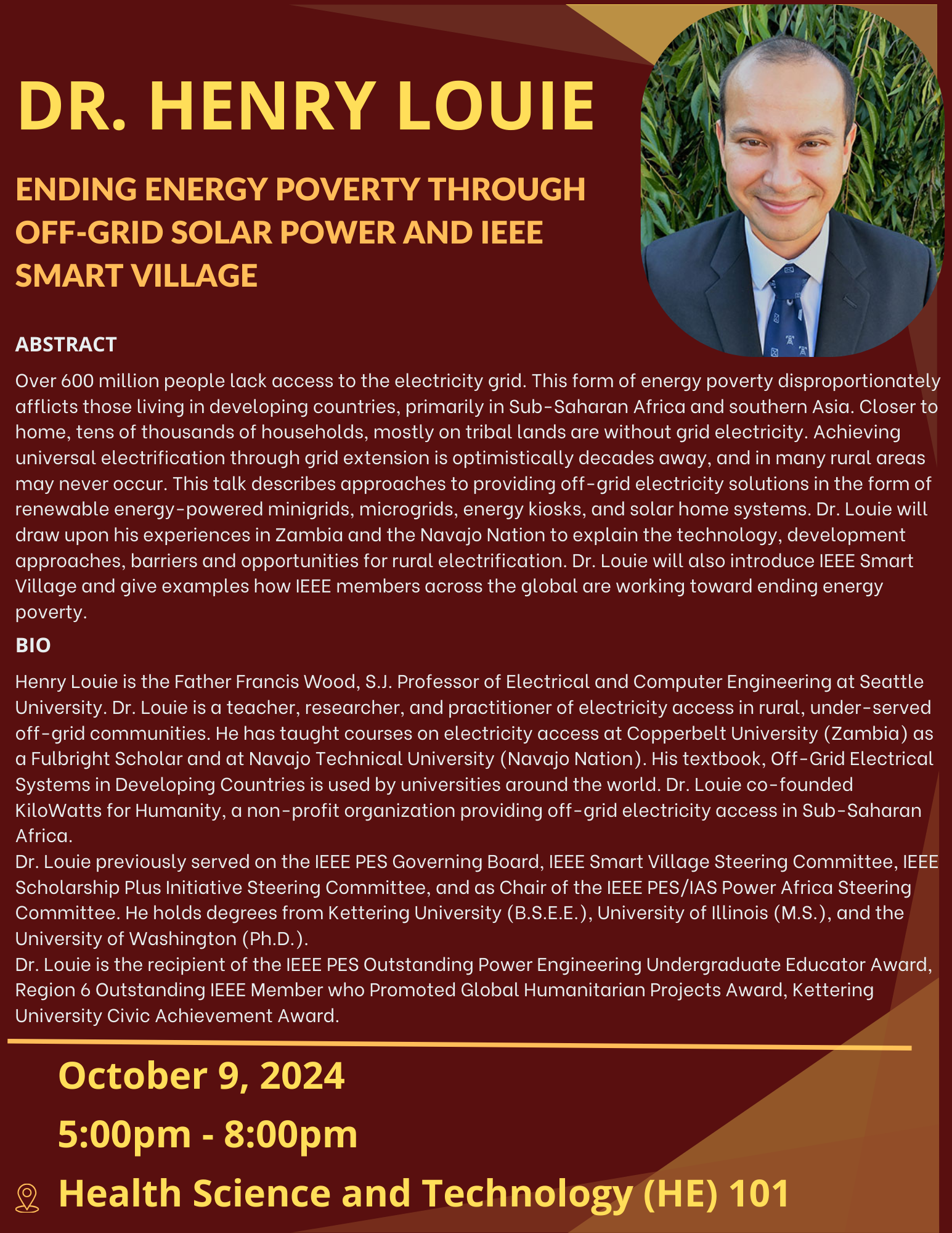
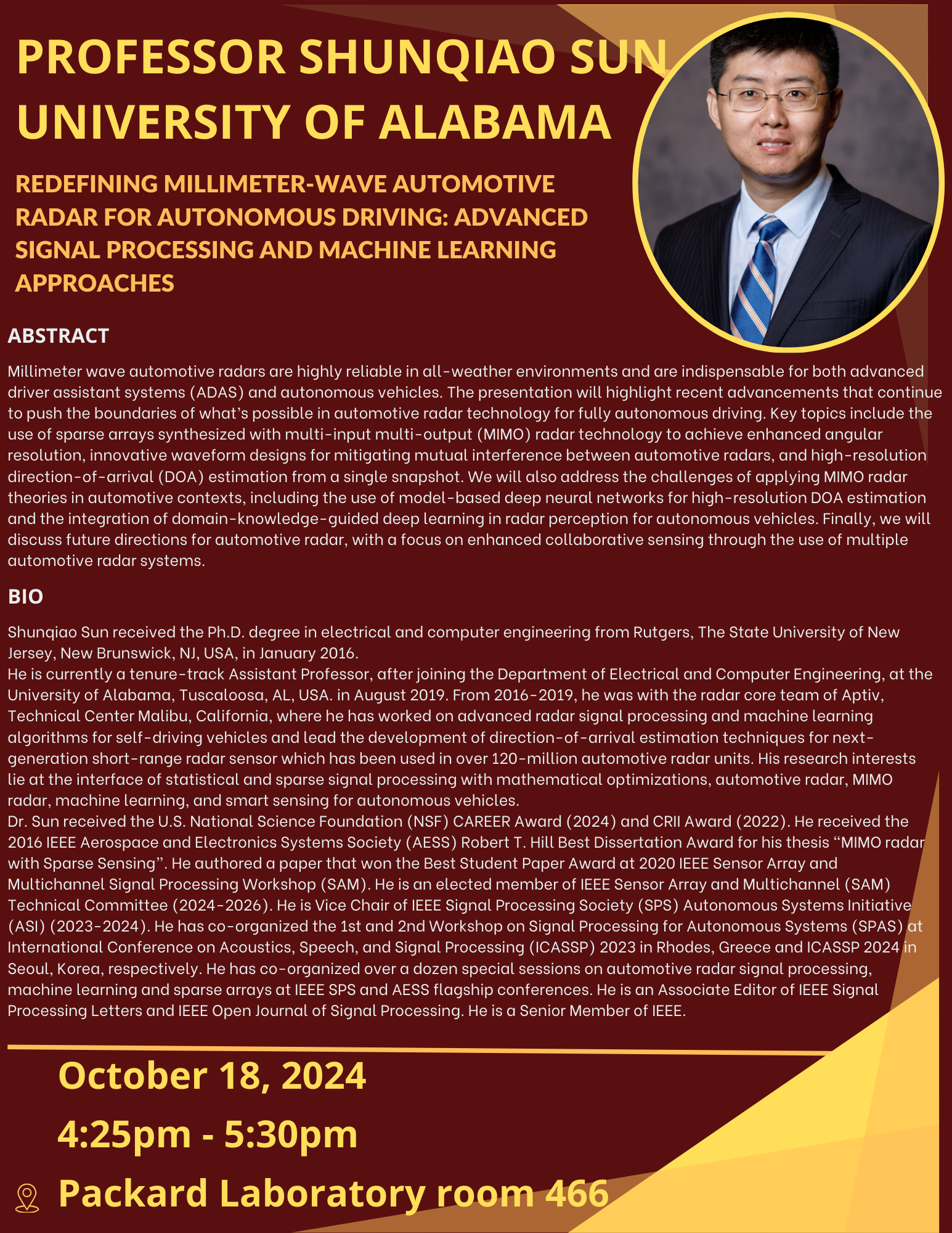

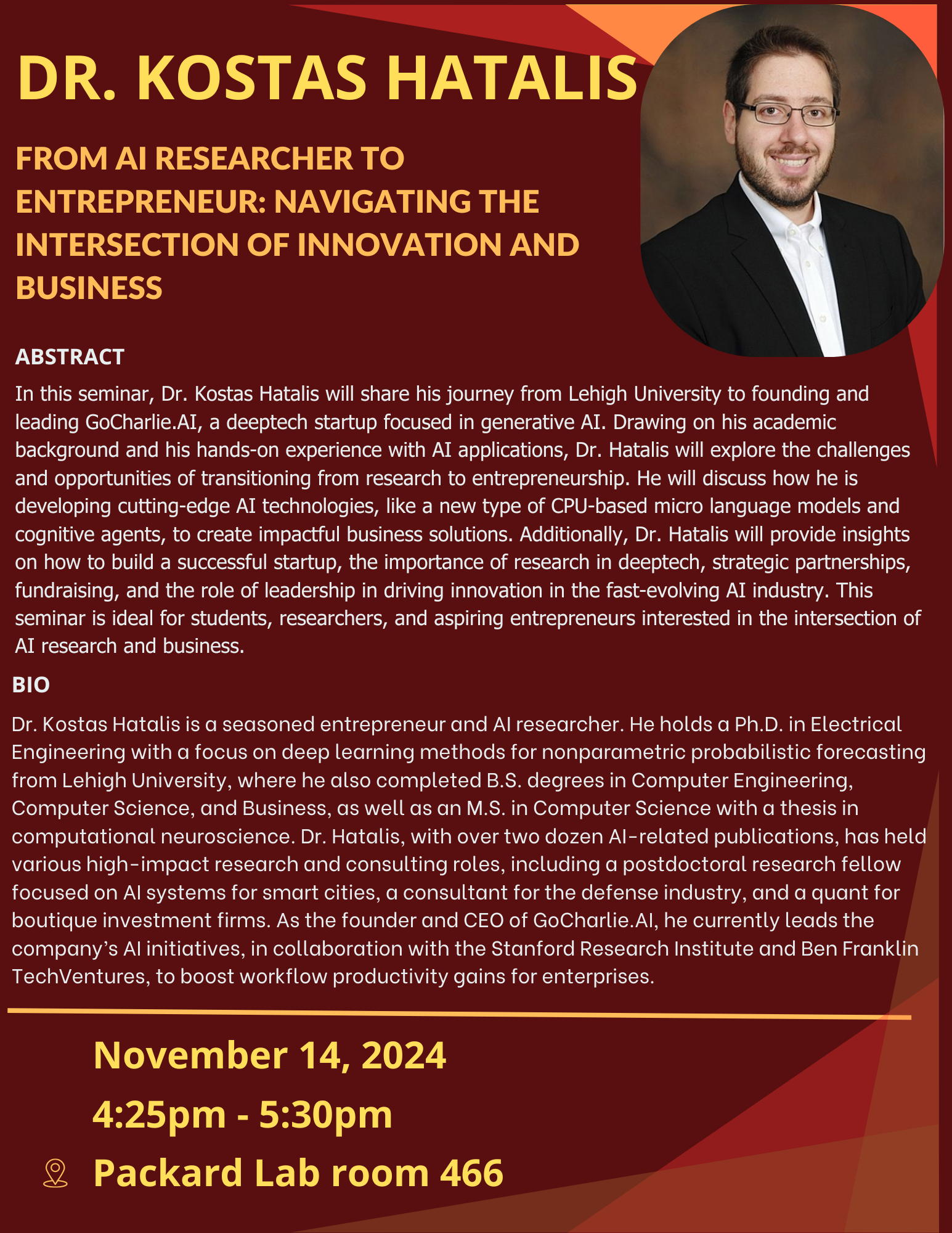
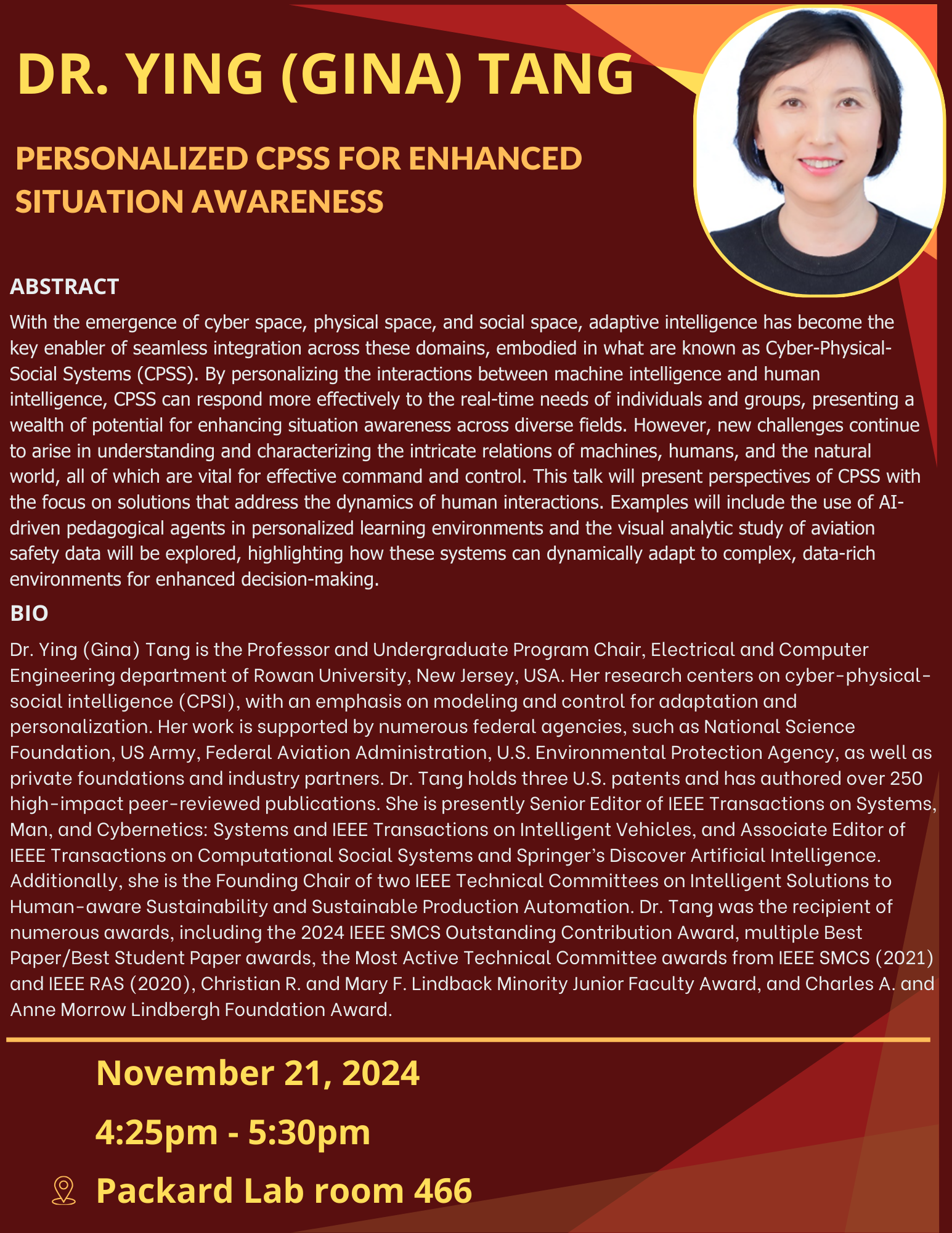
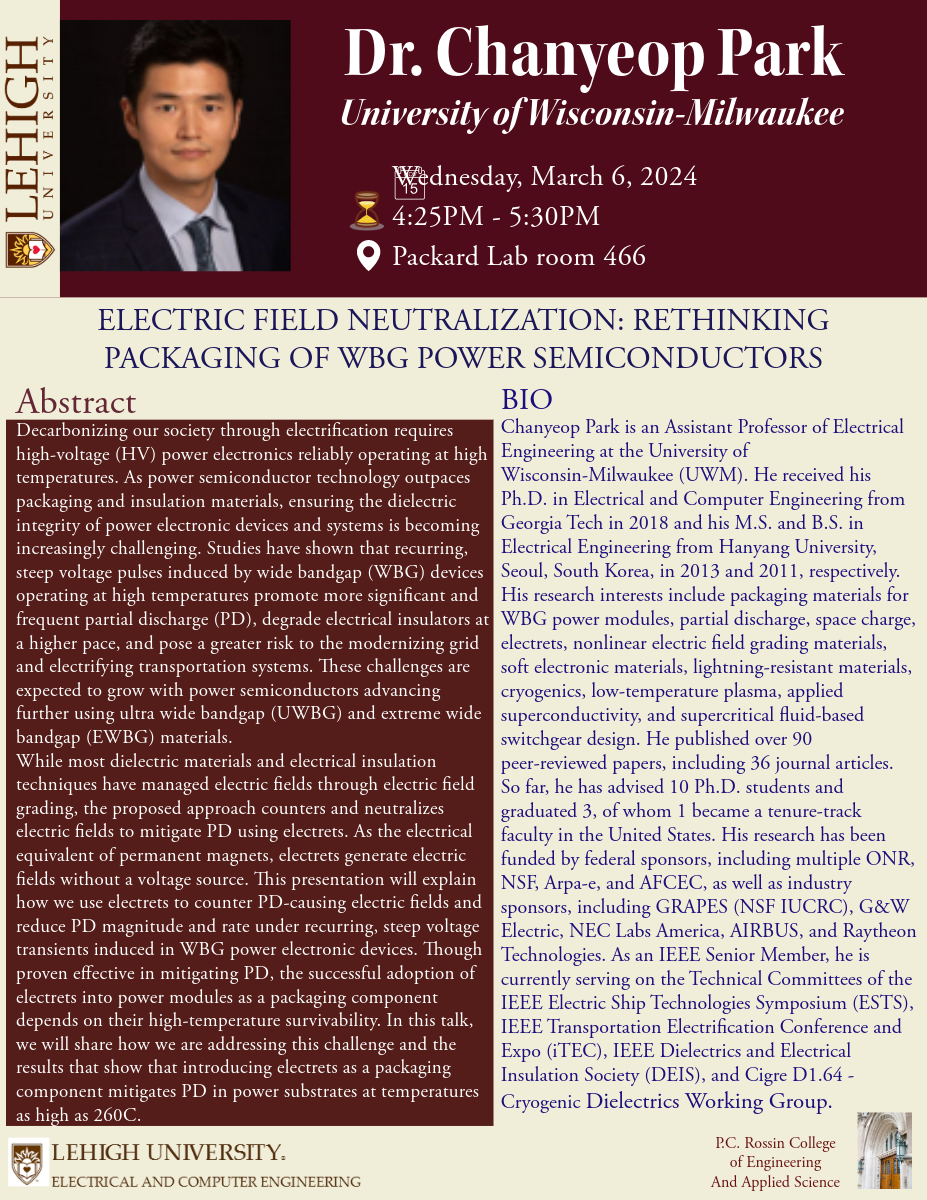
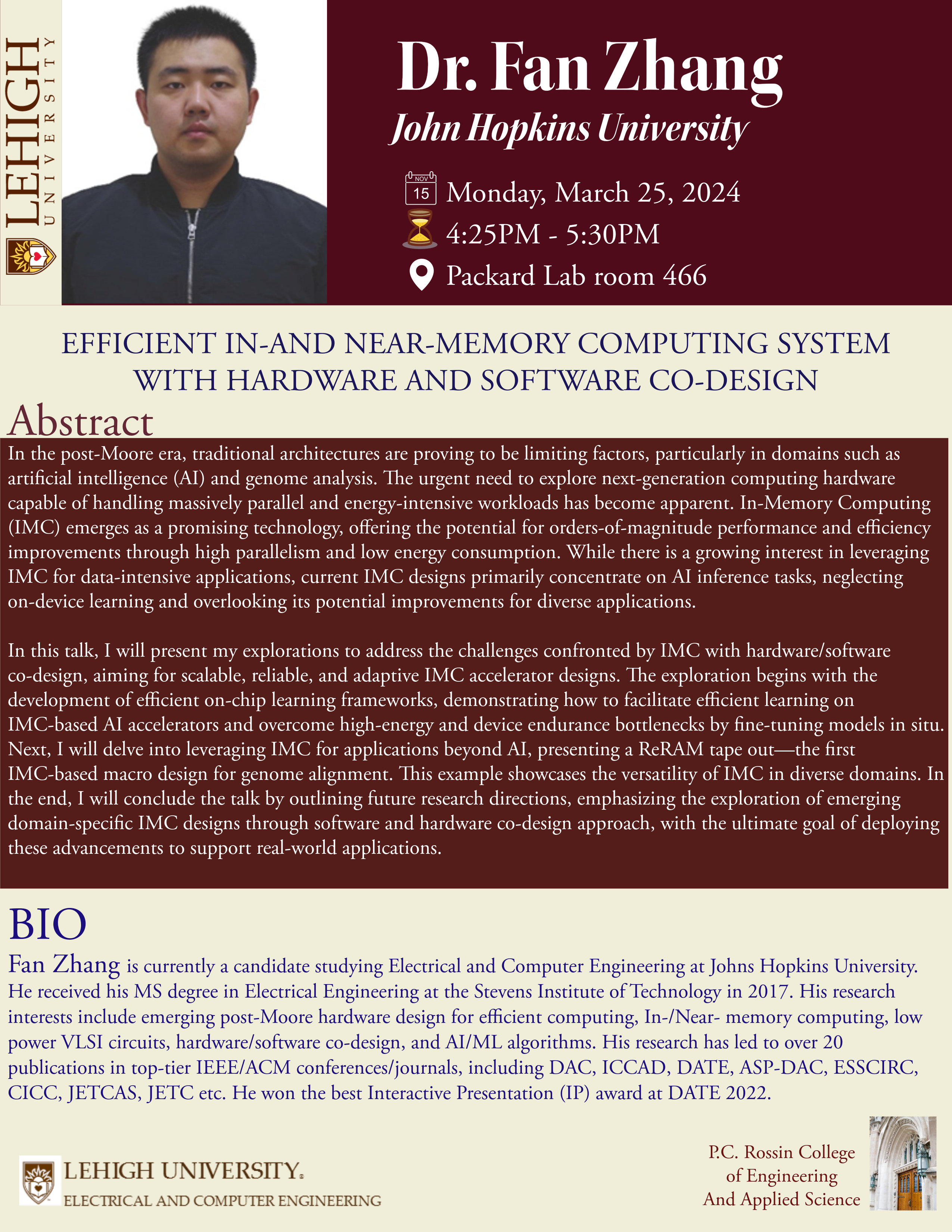
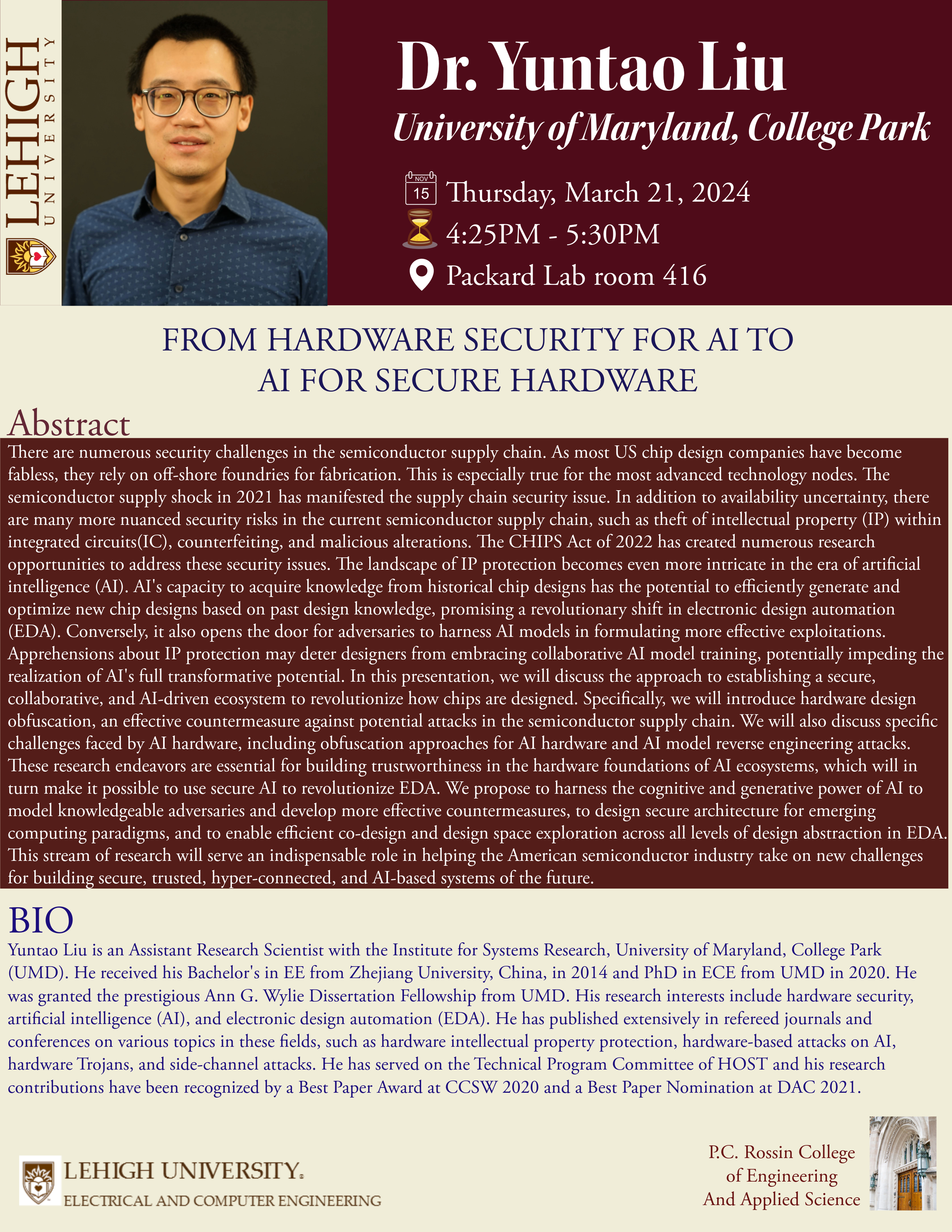
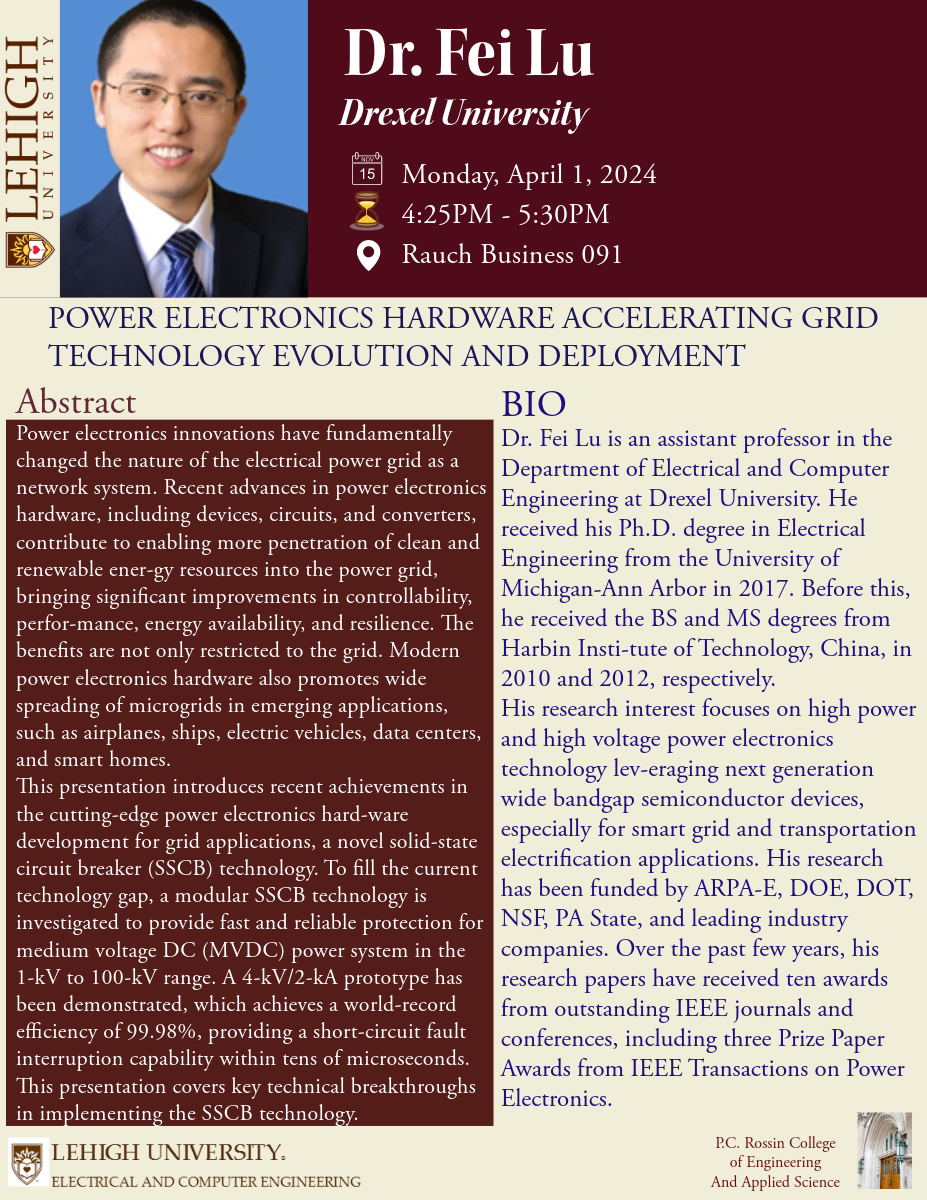
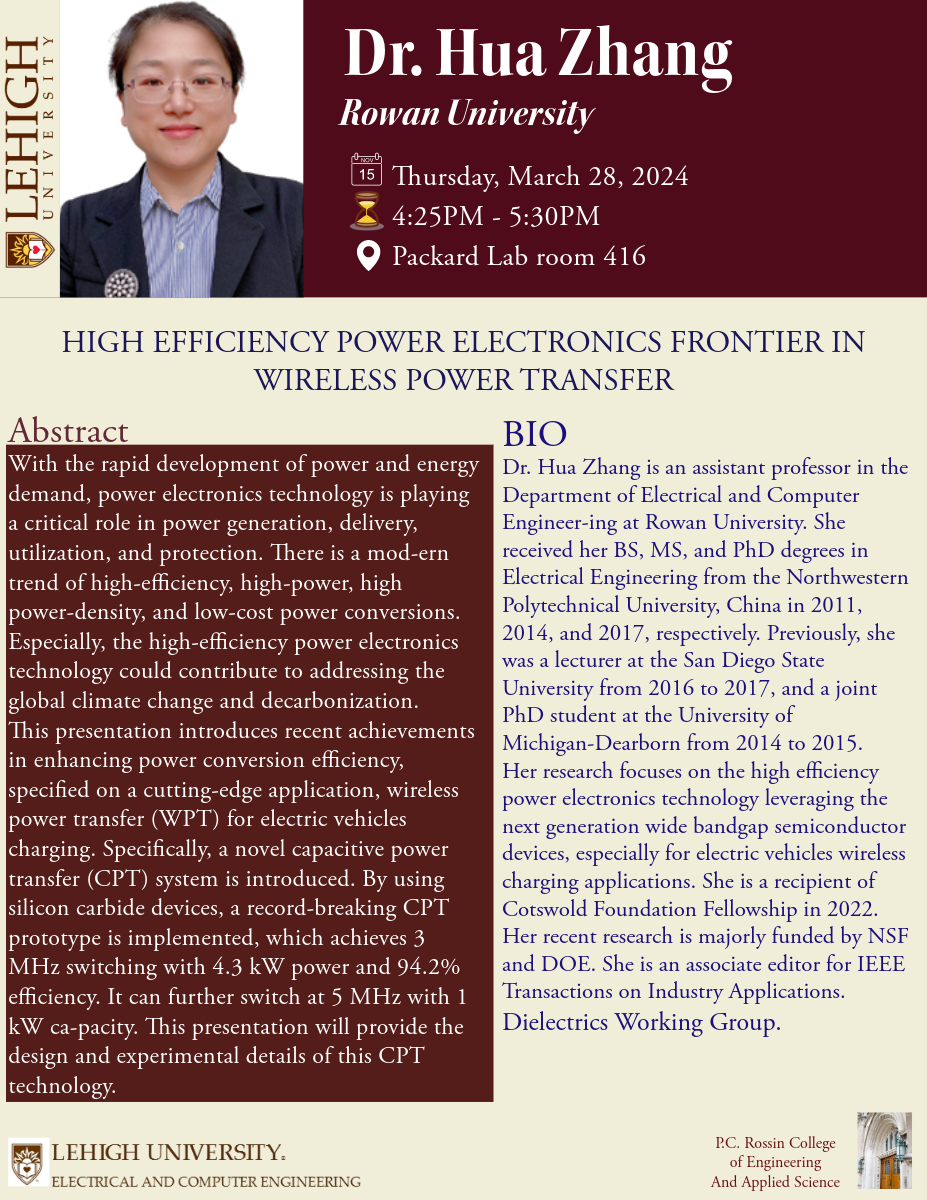
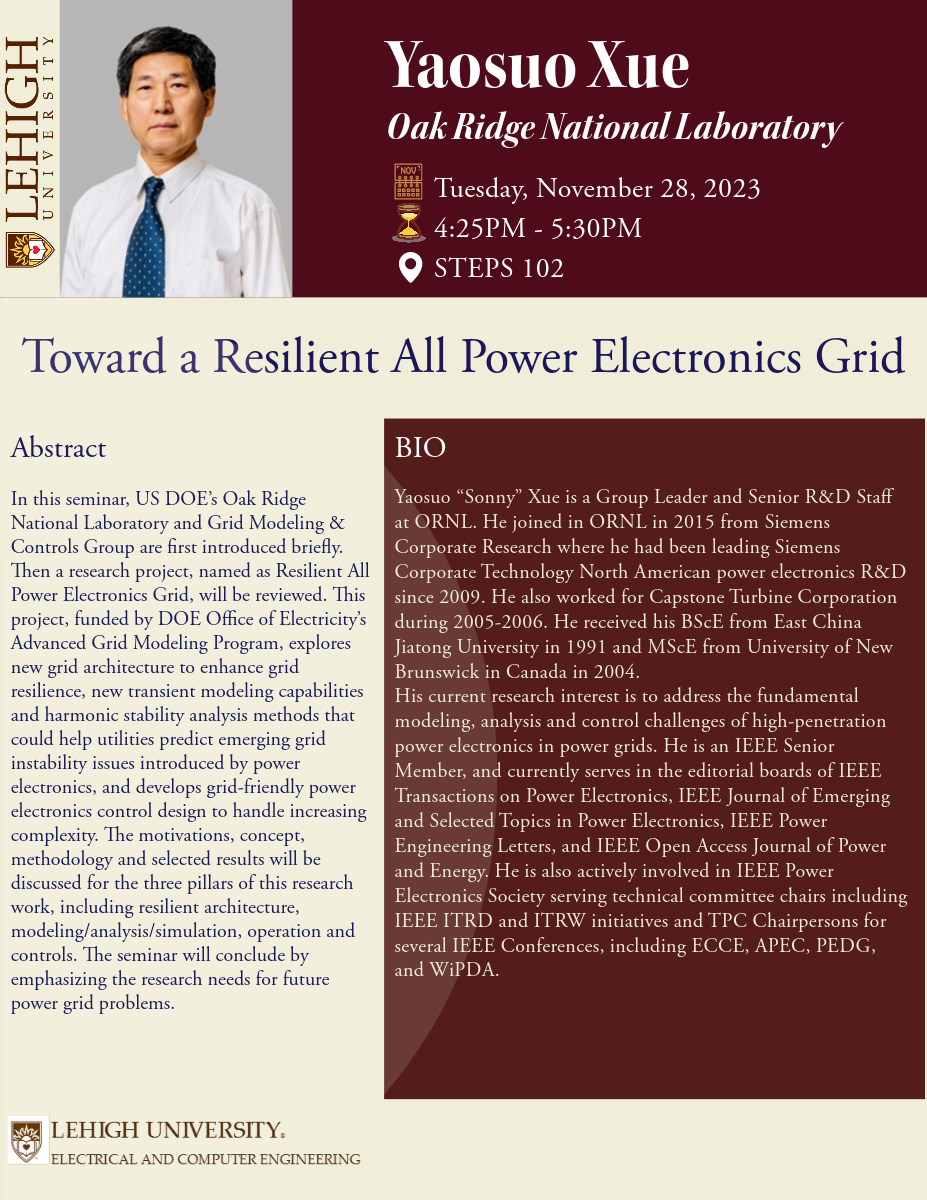
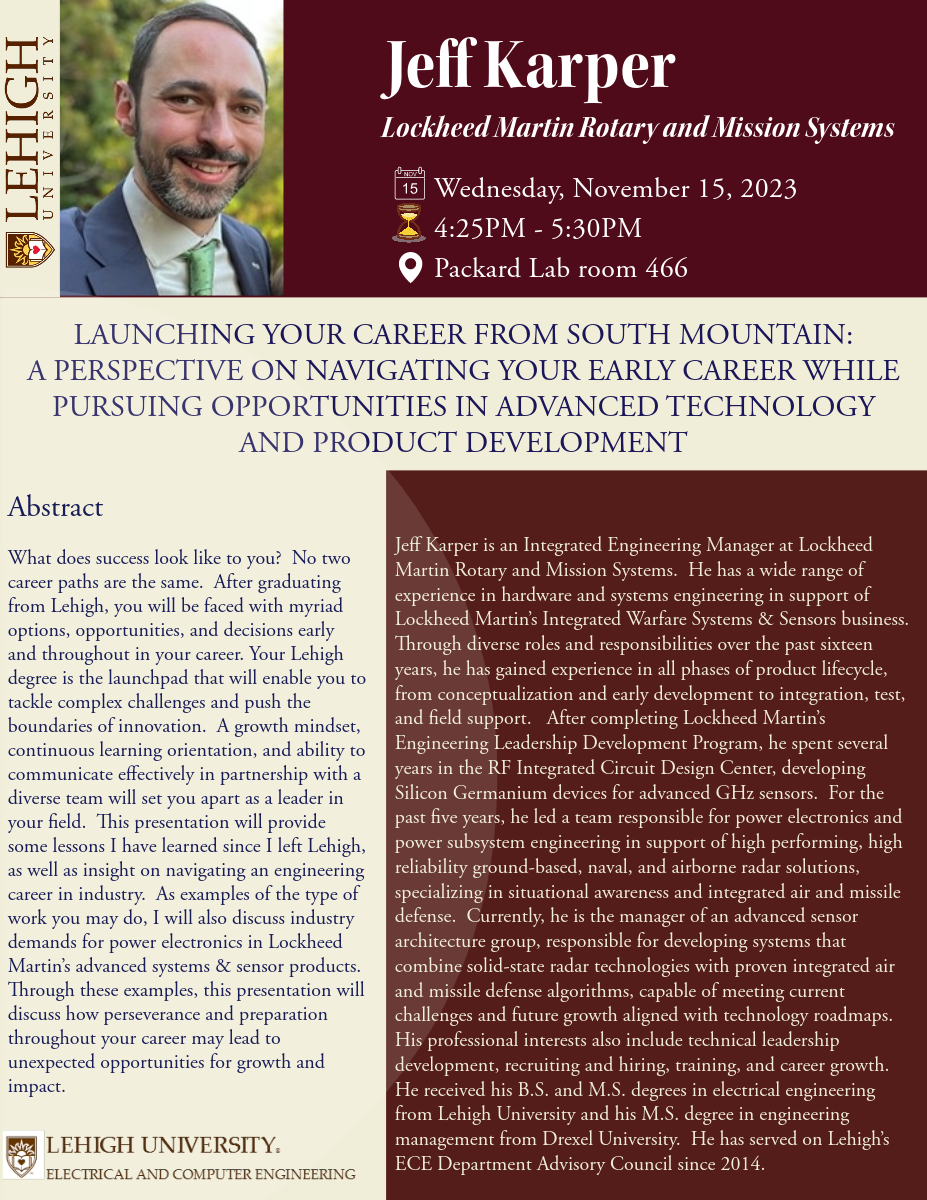
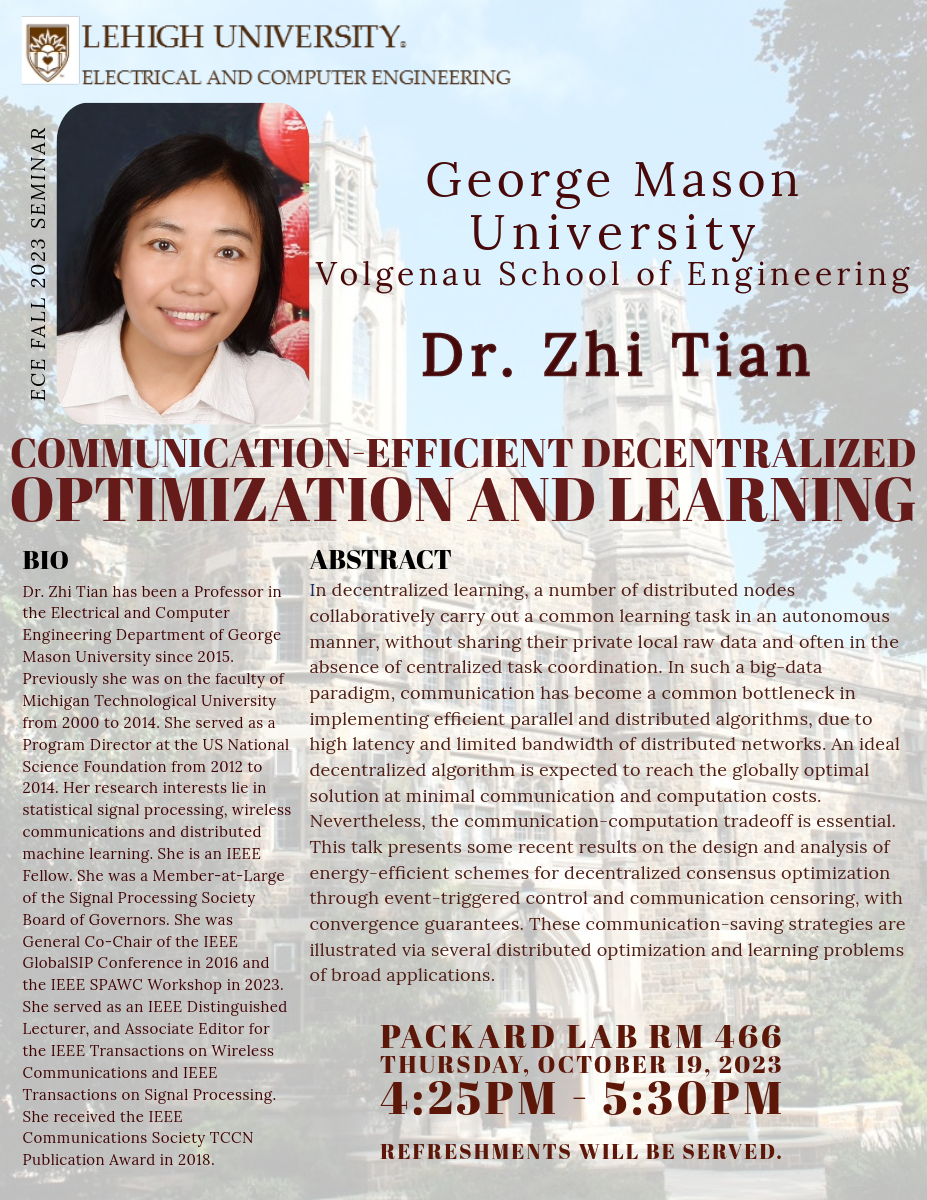
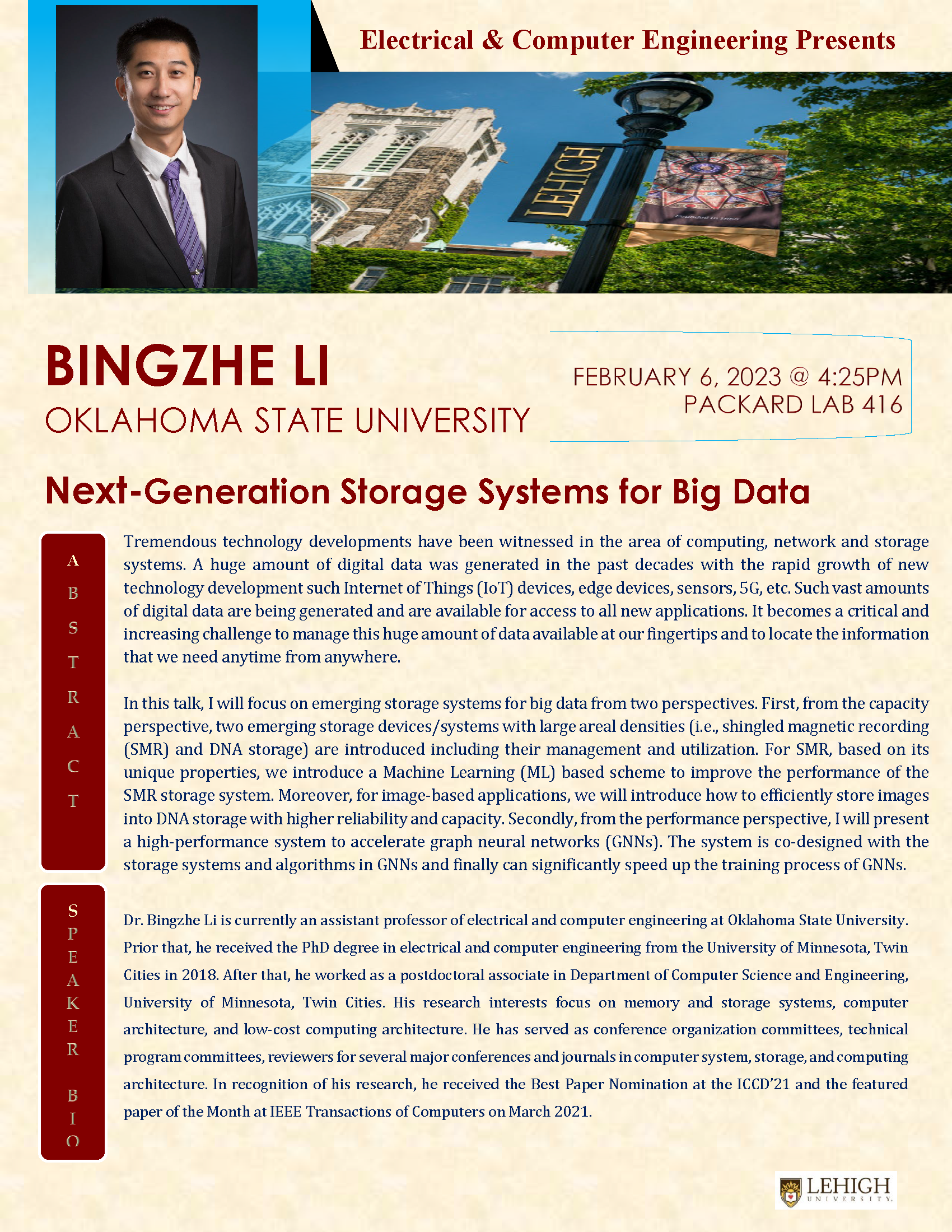
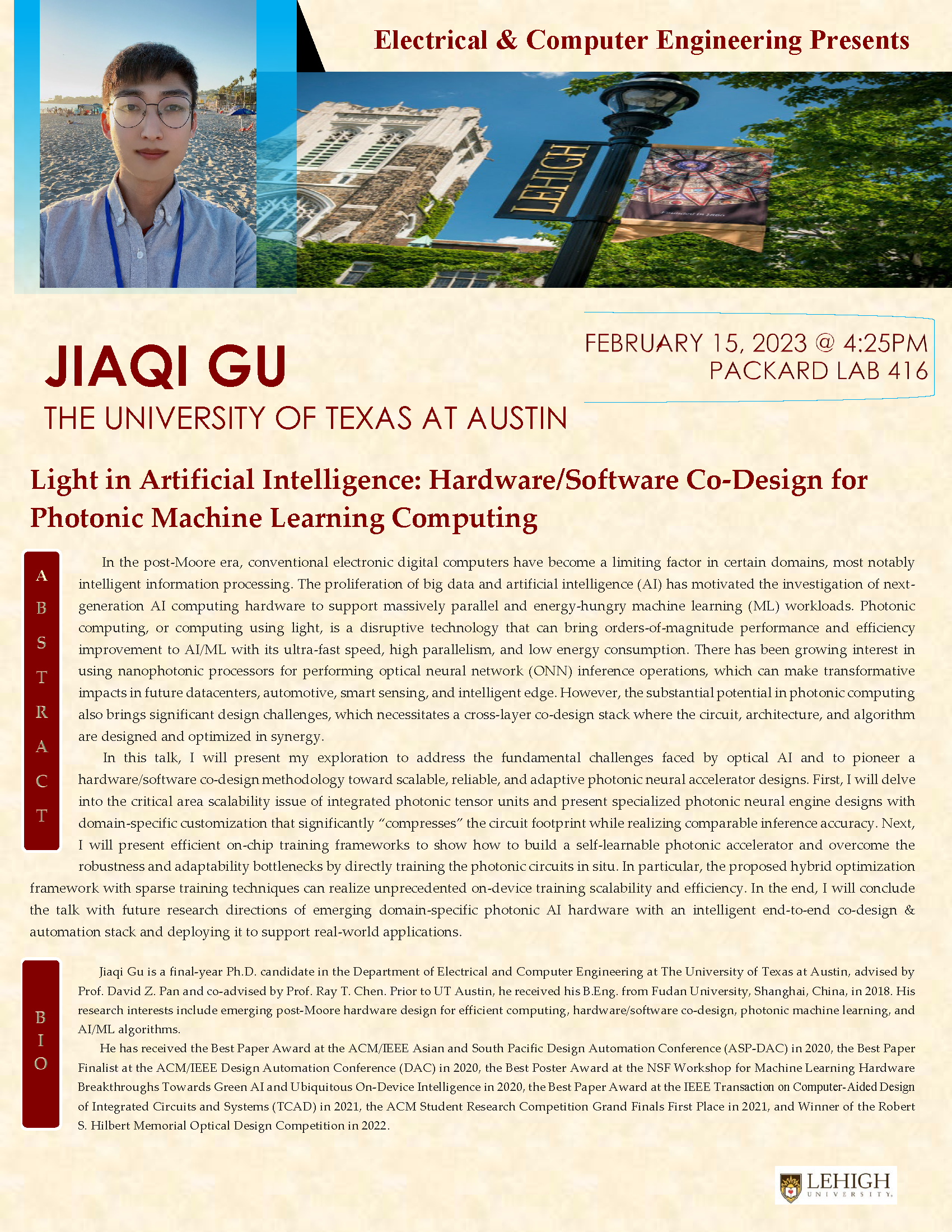
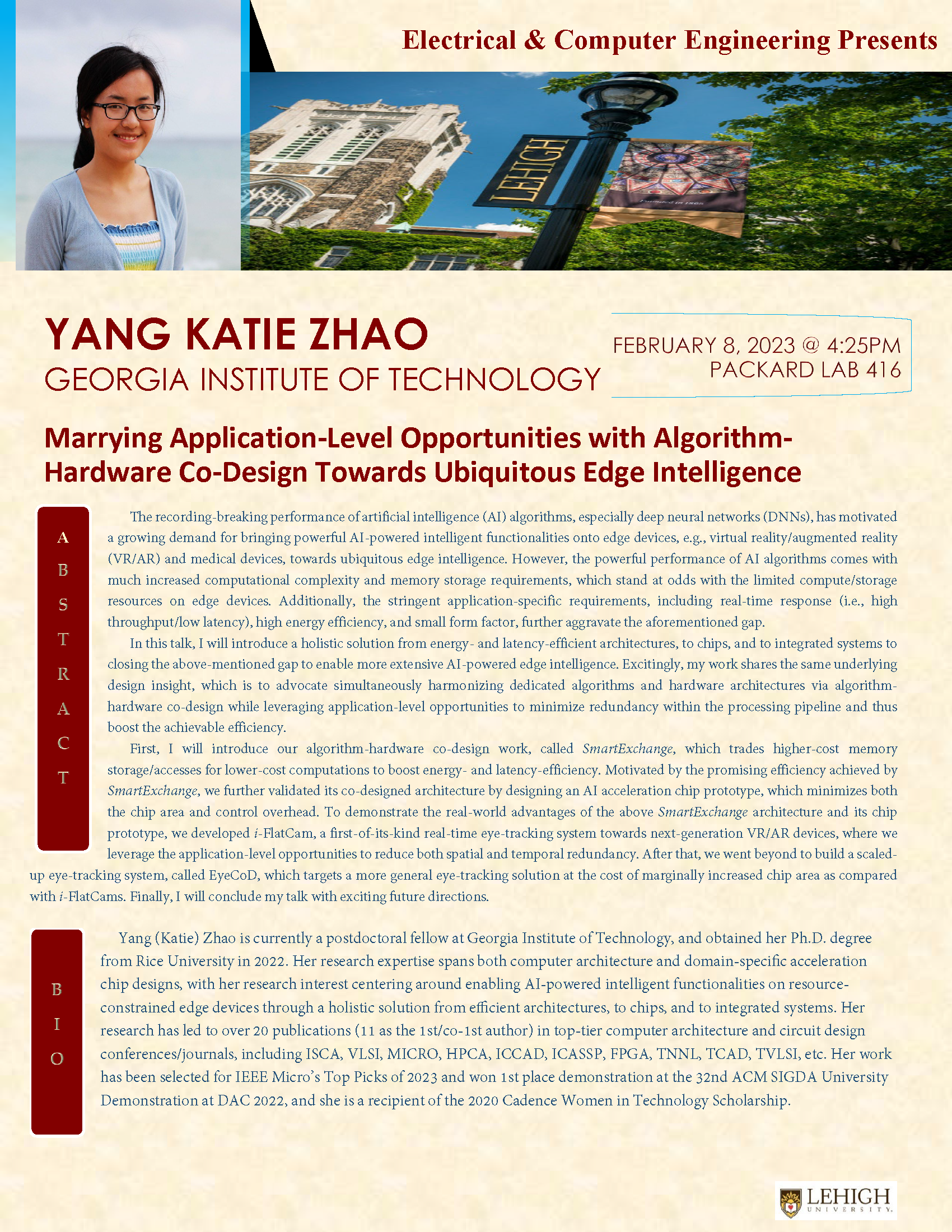
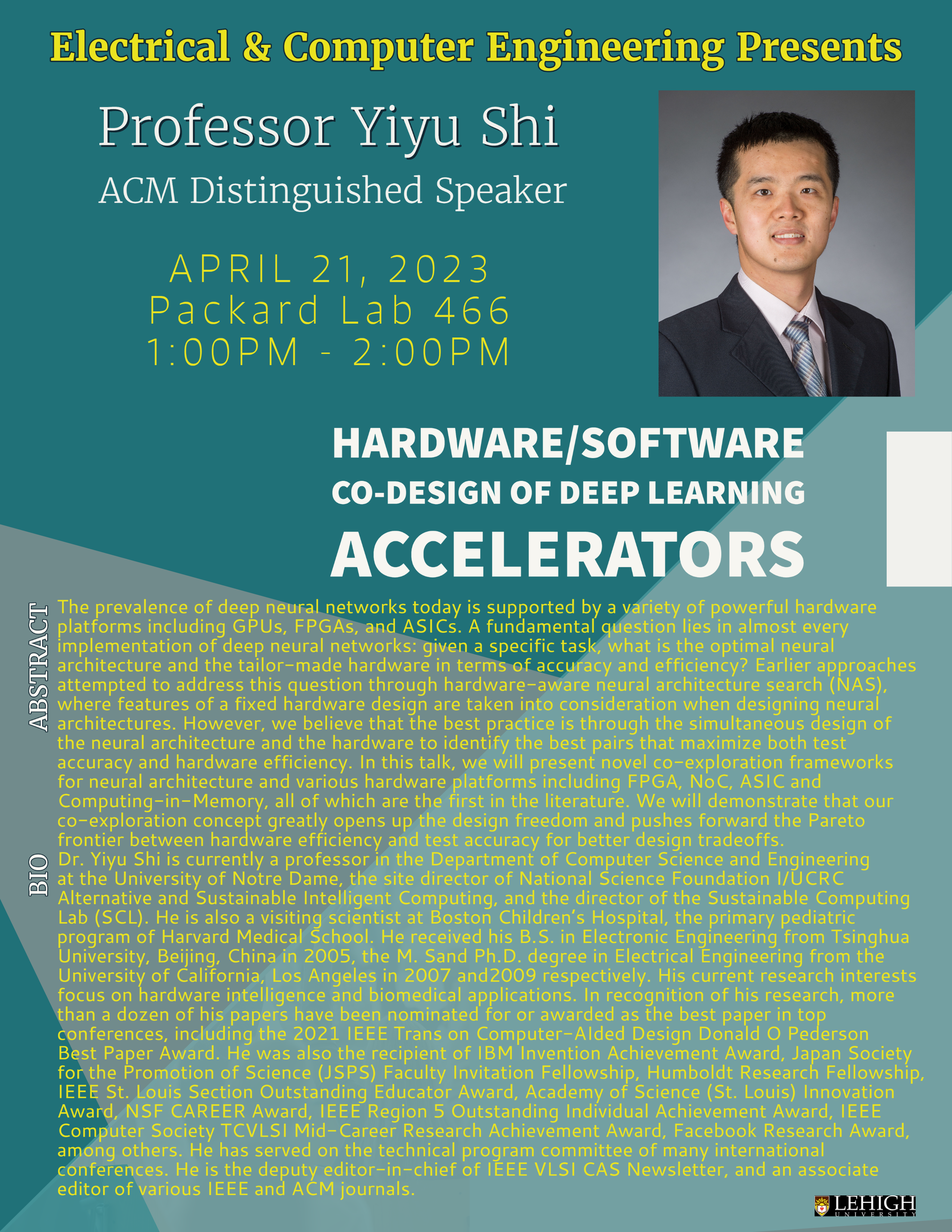
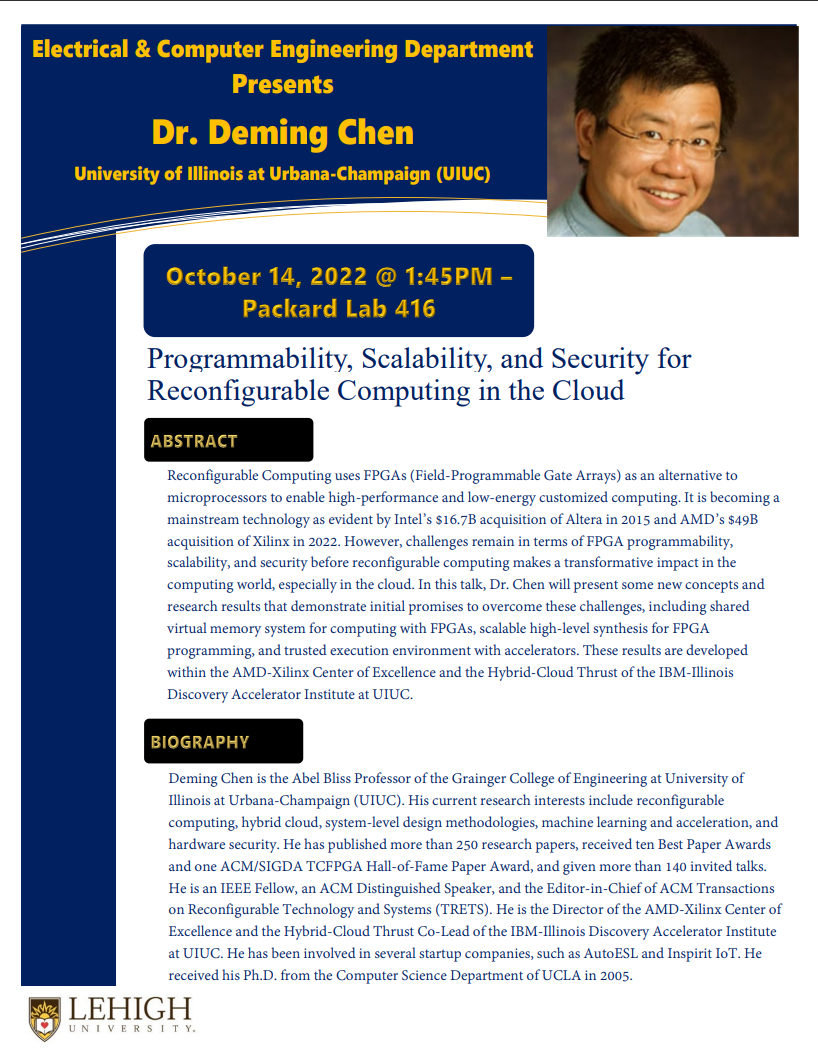
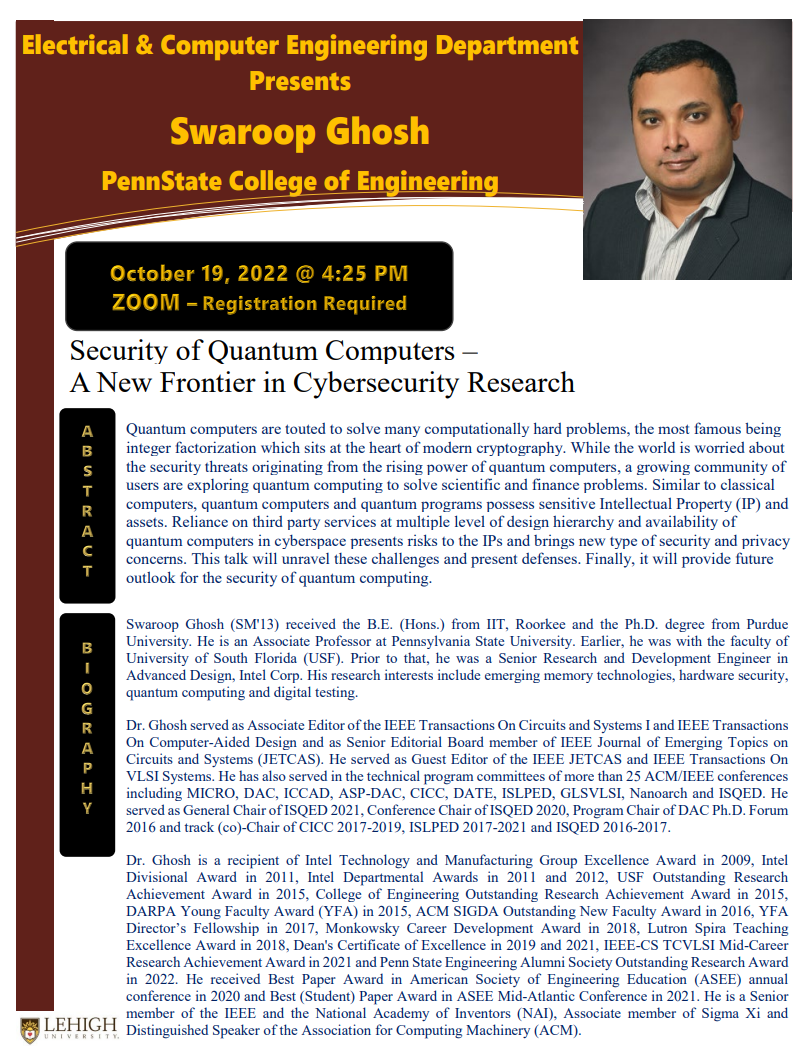

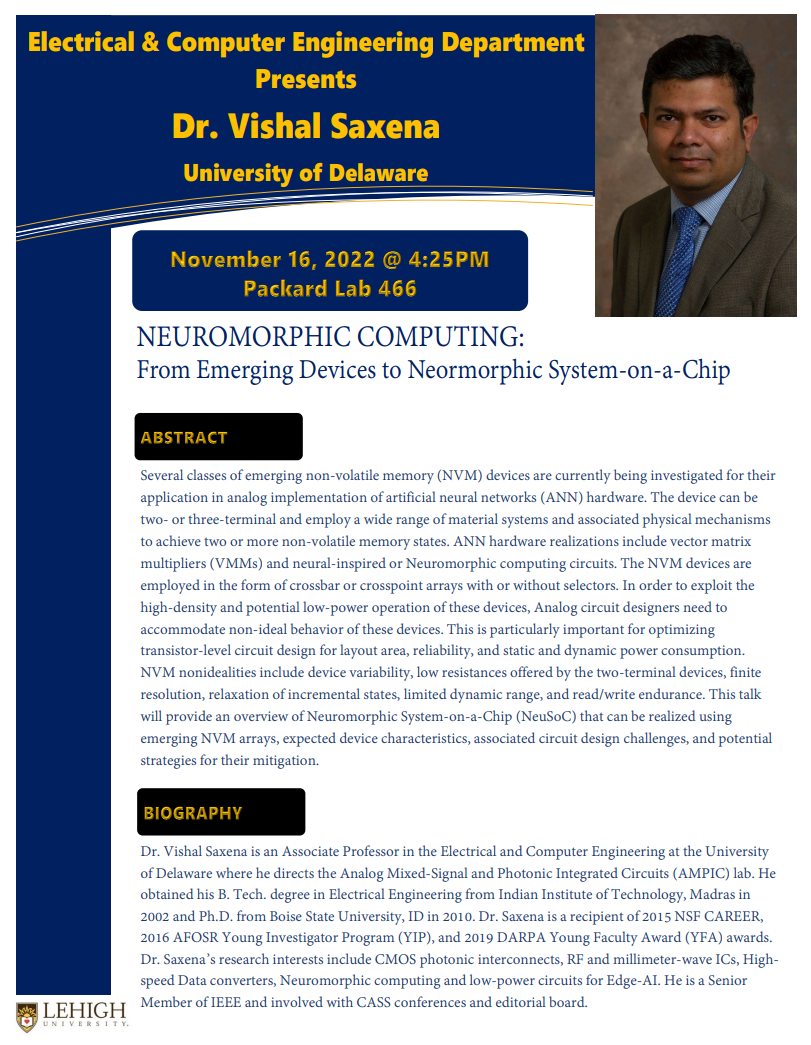
Spring 2022 Seminars:
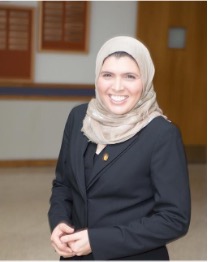
Abstract: The ambitious expansion in computational science and engineering brought forth several new advanced technologies including the internet of things (IoT). These technologies require superb capabilities. Though Si is still the bread and butter of the semiconductor industry, it is extremely challenging for Si to meet all the new technological demands. New emerging materials like 2D materials and Wide-bandgap semiconductors offer opportunities that Si cannot. Throughout my professional career I delved into different materials to overcome this challenge. I will present some of these opportunities from the perspective of 2D-materials and WBG semiconductors. Furthermore, because of Si maturity it is important for these materials to be Si-foundry compatible. Heterogeneously integrating 2D materials and WBG semiconductors on Si-Chips is the most advantageous route to realize robust standalone chips for future technologies.
Bio: Mona Ebrish is a Fulbright Scholar who received her B.S. degree in Electrical Engineering in 2007 from the University of Tripoli, Libya. She earned her M.S. and Ph.D. in Electrical Engineering from the University of Minnesota in 2011, 2015 respectively, under the supervision of Professor Steven J. Koester. Mona’s Ph.D. dissertation is one of the earliest studies on utilizing the quantum capacitance effect in Graphene for sensing applications. Later she spent 4 years at IBM as an Advisory Research Scientist working on Si-CMOS scaling challenges. Currently she is a Postdoctoral fellow at the Naval Research Lab investigating wide-bandgap semiconductors for high-voltage applications. Her research resulted in more than a dozen patents and over 30 papers and abstracts in major journals and conferences.

Abstract: Doug will discuss what inspired him into the field of microwaves and optics and give some lessons learned in industrial R&D at Hewlett-Packard, Agilent Technologies, and Keysight Technologies. He’ll provide fiber laser development and application examples including the story of the invention of the laser mouse.
Bio: Doug Baney has over 30 years of experience in engineering, applied research, and marketing with HP, Agilent, and Keysight Technologies in Silicon Valley. This led to many new and novel products in the fields of millimeter waves and photonics including the development of the first globally commercialized laser mouse. He holds 246 US and international patents, 83 publications cited over 2,300 times, and served as General Co-Chair of the Optical Fiber Communications Conference and General Co-Chair of the Optical Amplifiers and Their Applications Conference. In his current role as Corporate Director of Education, he manages engagements with universities worldwide with dotted line connections to marketing, research, human resources, and sales. He’s an Honorary Visiting Professor with The University of Edinburgh, an Adjunct Professor with the University of California, Santa Barbara, and a Fellow of the IEEE.
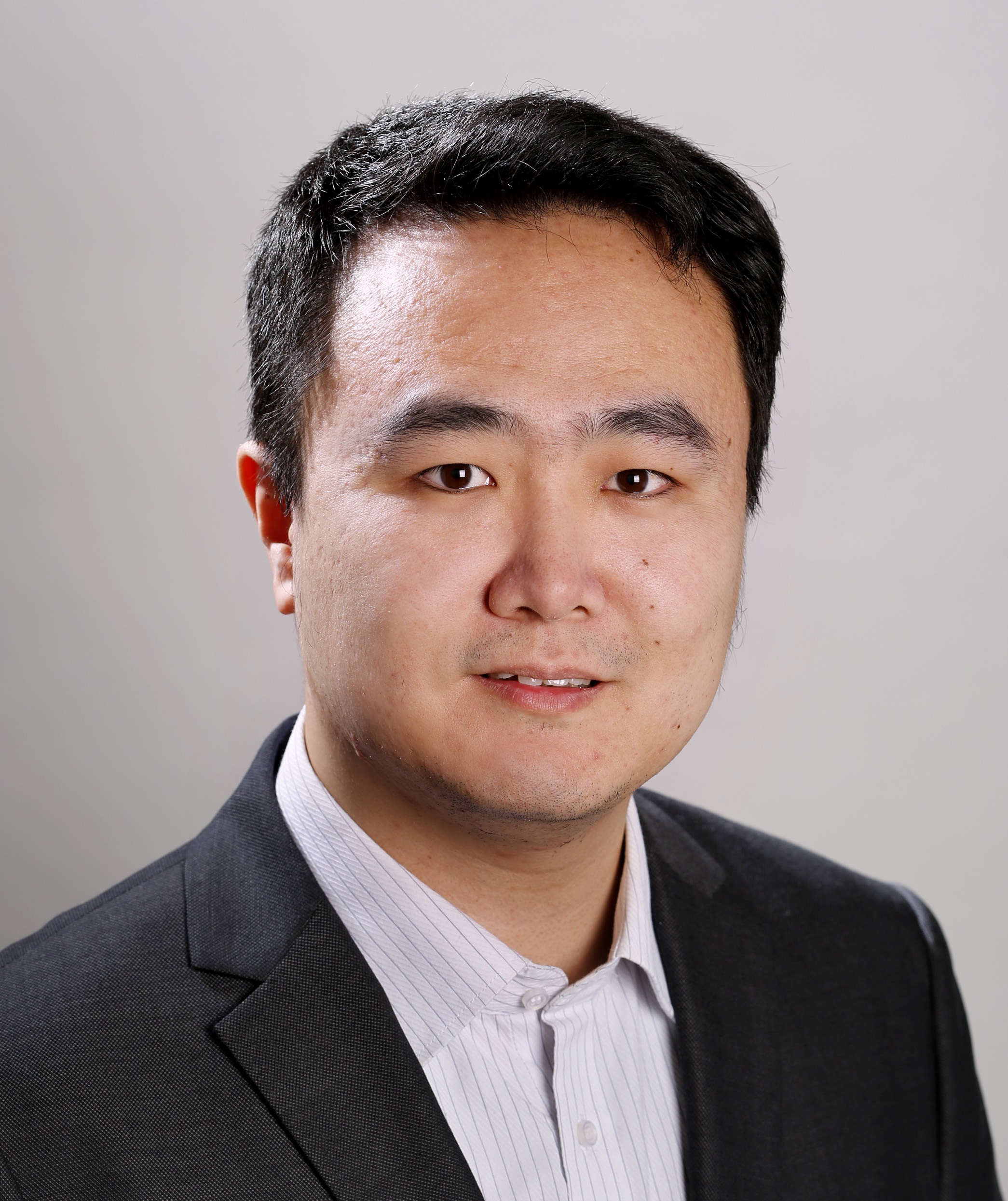
Abstract: Metal halide perovskite semiconductors are a proposed new generation of light emitting devices featuring high color quality, energy efficiency and low manufacturing cost. For example, perovskite LEDs with external quantum efficiencies above 20% have been realized. Despite rapid advances in performance of devices in the laboratory, better understanding of their fundamental properties is crucial for their optimization and commercial realization.
Bio: Lianfeng Zhao is currently a Postdoctoral Research Associate at Princeton University. He received his Ph.D. from Princeton University in 2019, M.S. from Tsinghua University in 2014, and B.E. from Xidian University in 2012. His research focuses on optoelectronic thin-film materials, devices, and applications. His work has been recognized by a number of awards including the Princeton Wallace Memorial Honorific Fellowship and the Princeton School of Engineering and Applied Science Award for Excellence.
Fall 2021 Seminars:
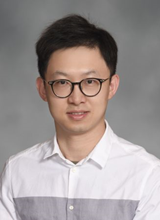
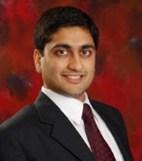


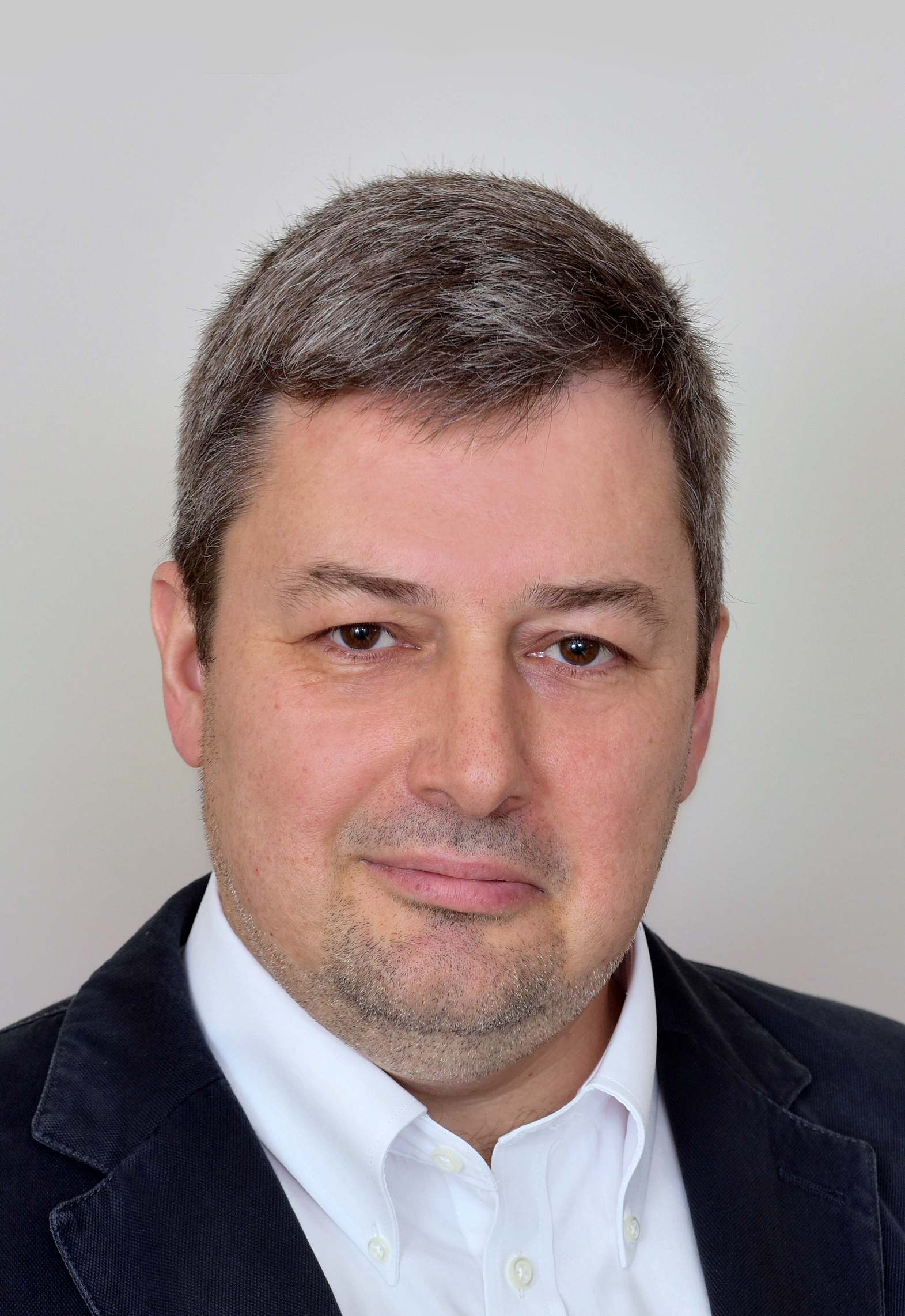
Spring 2021 Seminars:
Abstract: Most complicated and coordinated tasks performed by the Large Scale Multi-Agent System (LS-MAS) require huge information exchange between the members of the team. This restricts the maximum population of LS-MAS due to the notorious "Curse of Dimensionality" and induces an interplay between the total number of agents and complexity of system optimization. The development of theory and algorithms that can break the "Curse of Dimensionality" while addressing the interplay, is, therefore, necessary to facilitate the optimal design of LS-MAS. In this talk, we will first introduce an emerging game theory, i.e. Mean-Field Game, to reformulate LS-MAS optimization problem without causing “Curse of Dimensionality” even while the number of agents is continuously increasing. Then, a novel reinforcement learning algorithm has been derived to obtain optimal control for LS-MAS by solving a coupled HJB-FPK equation from Mean-Field Game. Furthermore, to strengthen the practicality of derived learning technique, a safe reinforcement learning structure has been developed which cannot only learn the optimal control for LS-MAS but also strengthen the resiliency of LS-MAS in practical. Eventually, we will demonstrate the effectiveness of proposed work through numerical simulation results.
Bio: Hao Xu is an Assistant Professor in the Department of Electrical and Biomedical Engineering at University of Nevada, Reno (UNR). He received his Ph.D. degree from the Department of Electrical and Computer Engineering at Missouri University of Science and Technology, Rolla, MO (formerly known as University of Missouri-Rolla) in 2012. Before joining UNR, he worked at Texas A&M University– Corpus Christi, TX, USA, as an Assistant Professor with the College of Science and Engineering. His research focuses on artificial intelligence, cyber-physical systems, autonomous systems, multi-agent systems, intelligent design for power grid, and adaptive control. He has published more than 100 technical articles, many of them appeared in highly competitive venues (such as Automatica and IEEE Transactions on Neural Networks and Learning Systems. His researches have been supported by Department of Defense (DoD), National Science Foundation (NSF), National Aeronautics and Space Administration (NASA), and industrial companies.
Abstract: This talk will introduce the United Nations Decode of Ocean Science for Sustainable Development program that just kicked off in Jan. 2021. I will share the UN's decade vision, decade mission, and specific interests and applications tied to underwater energy harvesting, underwater navigation, wireless communication, marine robotics, sensing, and ocean big data technologies.
Biography: Yahong Rosa Zheng received the Ph.D. degree Carleton University, Ottawa, ONT, Canada, in 2002. She was an NSERC Postdoctoral Fellow for two years with the University of Missouri-Columbia. then, she was on the faculty of the Department of Electrical and Computer Engineering at the Missouri University of Science and Technology for 13 years. She joined Lehigh University in Aug. 2018 as a professor in the ECE department. She developed eight new courses and taught 15 different courses in the area of embedded systems, wireless communications, real-time digital signal processing, FPGA, GPU, and robotics. Her research interests include underwater cyber-physical systems, compressive sensing, wireless communications, and wireless sensor networks. She has served as a Technical Program Committee (TPC) member for many IEEE international conferences and Associate Editor for three IEEE journals. She is currently a senior editor for IEEE Vehicular Technology Magazine and an Associate Editor for the IEEE Journal of Oceanic Engineering. She is the recipient of an NSF faculty CAREER award in 2009. She has been an IEEE fellow and a Distinguished Lecturer of IEEE Vehicular Technology Society since 2015.
Fall 2020 Seminars:
Spring 2020 Seminars:
Abstract: Augmented/Virtual Reality platforms, Real-Time Translators, and Intelligent Personal Assistants are emerging applications within our grasp thanks to continuous developments in Deep Neural Network (DNN) models. DNN hardware accelerators are paving the way for such applications to be deployed to embedded devices. However, data movement remains a critical bottleneck and CMOS memory technologies struggle to keep up with the increase in memory footprint for state-of-the-art DNN models, forcing the system to perform costly off-chip DRAM memory access. As the future of computing is shaped by the way we store and process large amounts of information, a need for design solutions at the intersection of devices, circuits, architectures, and applications emerges. This talk will present full-stack design methodologies that leverage embedded non-volatile memories (eNVMs) as a dense, approximate storage solution to reduce DRAM accesses by storing DNN models entirely on chip. In evaluating the implications of building eNVM-based computing systems, it is critical to take into account the non-idealities of many eNVM implementations. Multi-level cell storage offers the opportunity for higher capacity, but introduces reliability issues. Moreover, the high energy and latency costs of eNVM writes, together with limited memory endurance, set a limit on how frequently and efficiently the memory content can be updated. I will show that all these limitations can be circumvented by adopting device, architectural, and algorithmic co-design optimizations, making eNVMs a viable solution for energy-efficient DNN inference at the edge.
Bio: Dr. Marco Donato is a Research Associate in the John A. Paulson School of Engineering and Applied Sciences at Harvard University. His research focuses on the design of novel embedded memory subsystems and circuitry in advanced CMOS technology nodes with applications to machine learning hardware accelerator SoCs. Before joining Harvard, Dr. Donato received his Ph.D. from Brown University where he worked on developing automated tools for noise-tolerant circuit architecture design, and physically accurate and computationally efficient simulation techniques for evaluating the effect of thermal and random telegraph signal (RTS) noise in nanoscale sub-threshold CMOS circuits. Dr. Donato holds a Master and Bachelor’s degree from the University La Sapienza in Rome.
Fall 2019 Seminars:
